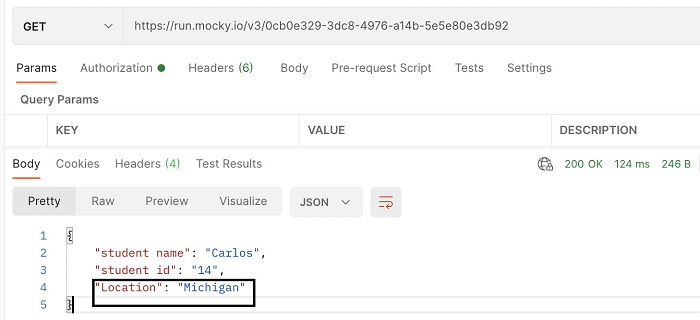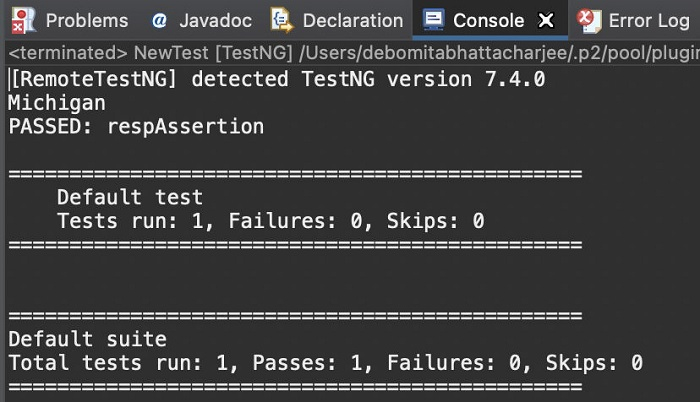
 Data Structure
Data Structure Networking
Networking RDBMS
RDBMS Operating System
Operating System Java
Java MS Excel
MS Excel iOS
iOS HTML
HTML CSS
CSS Android
Android Python
Python C Programming
C Programming C++
C++ C#
C# MongoDB
MongoDB MySQL
MySQL Javascript
Javascript PHP
PHP
- Selected Reading
- UPSC IAS Exams Notes
- Developer's Best Practices
- Questions and Answers
- Effective Resume Writing
- HR Interview Questions
- Computer Glossary
- Who is Who
How to use Assertion in response in Rest Assured?
We can use Assertion in response in Rest Assured. To obtain the Response we need to use the methods - Response.body or Response.getBody. Both these methods are a part of the Response interface.
Once a Response is obtained it is converted to string with the help of the asString method. This method is a part of the ResponseBody interface. We can then obtain the JSON representation of the Response body with the help of the jsonPath method. Finally, we shall verify the JSON content to explore a particular JSON key with its value.
We shall first send a GET request via Postman on a mock API URL and go through the Response body.

Using Rest Assured, we shall check if the value of the key - Location is Michigan.
Example
Code Implementation
import org.testng.Assert;
import org.testng.annotations.Test;
import static io.restassured.RestAssured.*;
import io.restassured.RestAssured;
import io.restassured.path.json.JsonPath;
import io.restassured.response.Response;
import io.restassured.response.ResponseBody;
import io.restassured.specification.RequestSpecification;
public class NewTest {
@Test
void respAssertion() {
//base URI with Rest Assured class
RestAssured.baseURI = "https://run.mocky.io/v3";
//input details
RequestSpecification h = RestAssured.given();
//get response
Response r = h.get("/0cb0e329-3dc8-4976-a14b-5e5e80e3db92");
//Response body
ResponseBody bdy = r.getBody();
//convert response body to string
String b = bdy.asString();
//JSON Representation from Response Body
JsonPath j = r.jsonPath();
//Get value of Location Key
String l = j.get("Location");
System.out.println(l);
// verify the value of key
Assert.assertTrue(l.equalsIgnoreCase("Michigan"));
}
}
Output


Advertisements
